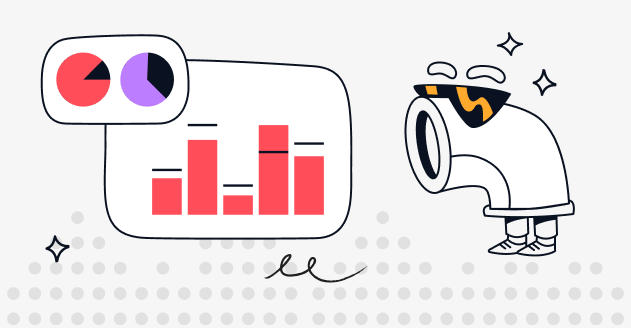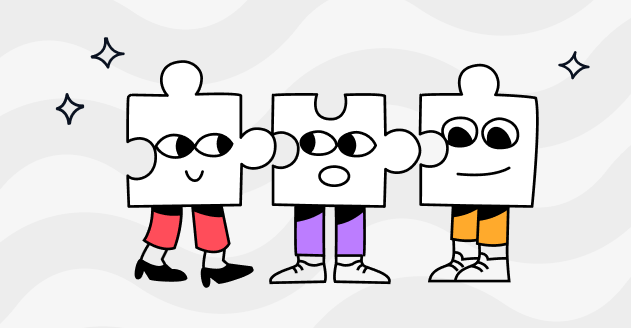Offboarding guide - Leave your Data Analyst job in style
The complete checklist for your last weeks. Leave your job without leaving a mess.

Introduction
We came across a slack thread that prompted so many reactions that we decided to write an article about it. The thread went as follows “We’ve had lots of great discussions about what to do when starting a new role. But what about when you’re leaving a role?”. We’ve gathered all the great thoughts from this thread, added our own, and made an article out of it.

You just quit your data analyst job, now what? You certainly won’t pack your bags and leave in a dramatic manner (except if you live in a movie). You usually stay for an additional few weeks (for legal or cultural reasons), during which you don’t really know what to do with yourself. What if instead, you used this time to do yourself and your company a huge favour by exiting gracefully?
Your last few weeks are key, and should be guided by two goals: help with the smooth transition of your projects, and ensure you don’t leave anything valuable for you behind (in terms of people, ideas, etc etc..)

Leave things better (or at least as good) as you found them
If your legacy is even remotely important to you, don’t skip this part. Don't overlook your legacy. Ask yourself questions like “How can set this up for the next person to succeed?”
A famous book said “Do to others whatever you would like them to do to you”. (I’ll let you guess which one). Think about what you would like to find if you were the new guy. If you don’t do it because you’re nice, do it because people will curse you for months after your departure otherwise.
Document, document, document 📃
Document, yes. You’ve probably heard that a million times. But you need to do it in a good way, and it's not that easy. Here are a few tips to get you going:
Don’t underestimate the number of things that live inside your head. The challenge is to get them all out in a clear, digestible manner for the next person who will be in your shoes. When building the departure knowledge base people will love you for, think on three different levels: the job in general, specific projects, and data.

Focus on the why more than the what. Focus on explaining why you’ve been doing things in a certain manner.
- Starting with the most general, build a knowledge base of all the relevant elements for the job. Like a care package for the next you. This knowledge base should consist of where to find the roadmap, the key people to contact, the tools used, key metrics to track, an overview of past achievements, etc.
- Next, think in terms of specific projects you’ve been working on. The best way to help with the smooth transition of your projects is to make an index of each project you’ve been working on, with links out to the documentation. Out of anyone in the organization, you know best how to map the things you’ve worked on.
- You’re a data analyst. Data has been a key component of all your project. Here again, think about all the terms (like column names) which you’re familiar with but someone new won’t be. For example, you’ve known for years that the column “FRPS3” in your databases refers to the percentage of taxes your clients are paying on a certain product. You don’t even think about it anymore. However, someone new to the company is likely to spend hours trying to figure out what it means if things haven’t been documented clearly in a data catalog.
A good tip to see whether you’ve done that well is to get someone who isn’t familiar with the fine details of your job to review your documentation as you go. If they don't understand it, chances are your replacement won't either.
Ensure you take what's yours
Caring about the trajectory and health of the company after you leave is noble, but caring about yourself is normal.
Before you leave, write down memories for yourself - what have you learned? Make sure you jot down all your achievements on a personal and technical level. This will ensure they stick with you for your future job. You’ll understand how much this one counts if you’ve ever sat at an interview staring blankly at the floor and stuttering as an answer to the question” What have you learned during X experience?”. If you haven’t, ensure it doesn’t happen by having a look back at what your job taught you while it’s still fresh in your head. Keeping copies of your performance reviews and other documents that could help you remember what you worked on might be a good way to do that.
If some people are important to you, and you want to keep them in your future life, make sure you make that clear before you leave.
Then, of course, there are a bunch of practical things you need to be aware of, such as all the HR stuff including when your health insurance ends, etc. We sometimes forget to pay attention to these kinds of details in the midst of the action, but you might regret it a lot later.
Conclusion
While these are all great advice don't burn yourself out trying to get everything ready for work-life without you. Do the best you can in the time remaining while making sure you take the time for goodbyes and thank yous.
Subscribe to the Castor Blog
About us
We write about all the processes involved when leveraging data assets: from the modern data stack to data teams composition, to data governance. Our blog covers the technical and the less technical aspects of creating tangible value from data.
At Castor, we are building a data documentation tool for the Notion, Figma, Slack generation. We designed our catalog software to be easy to use, delightful and friendly.
Want to check it out? Reach out to us and we will show you a demo.
You might also like
Get in Touch to Learn More



“[I like] The easy to use interface and the speed of finding the relevant assets that you're looking for in your database. I also really enjoy the score given to each table, [which] lets you prioritize the results of your queries by how often certain data is used.” - Michal P., Head of Data




.png)




